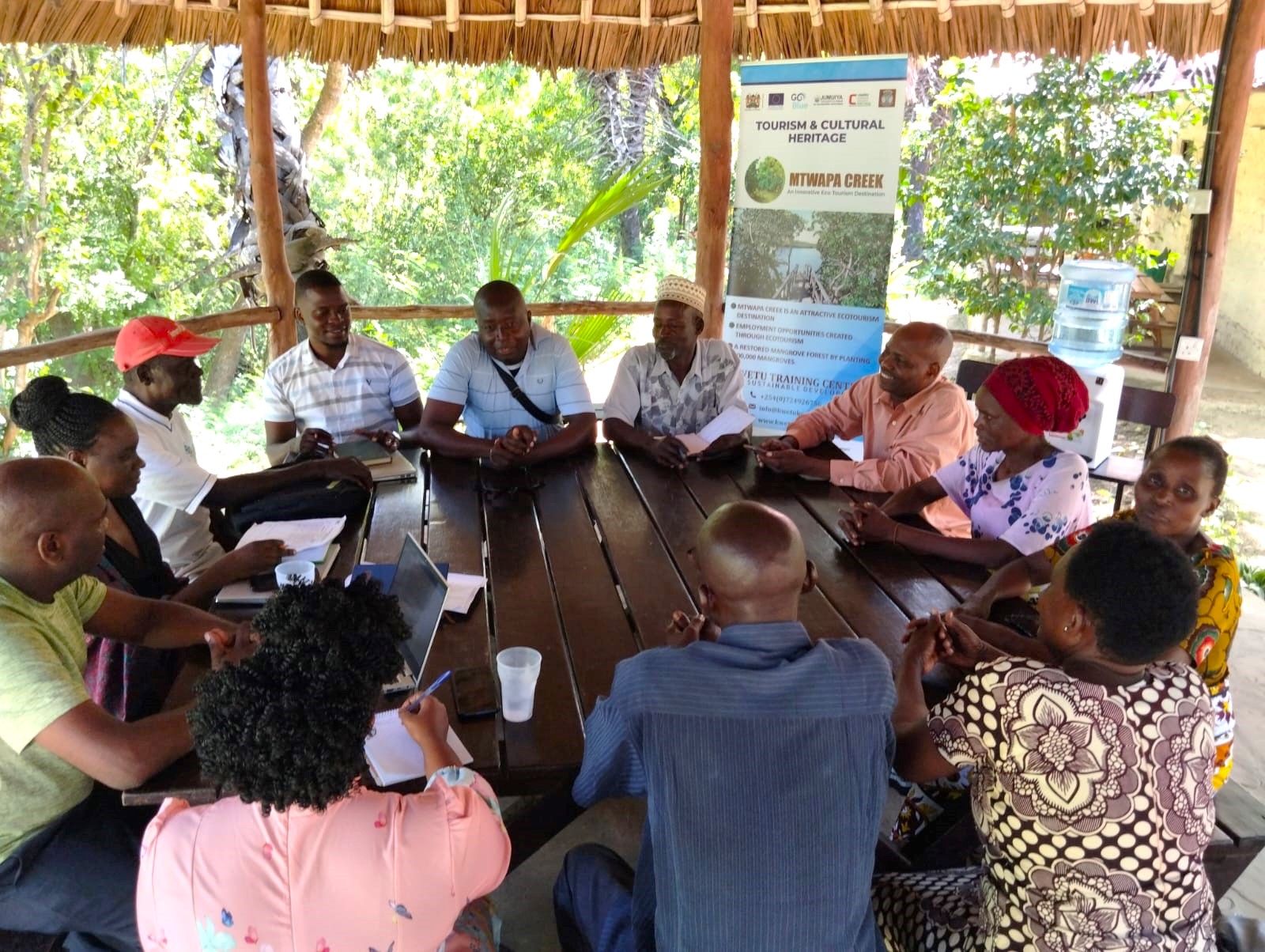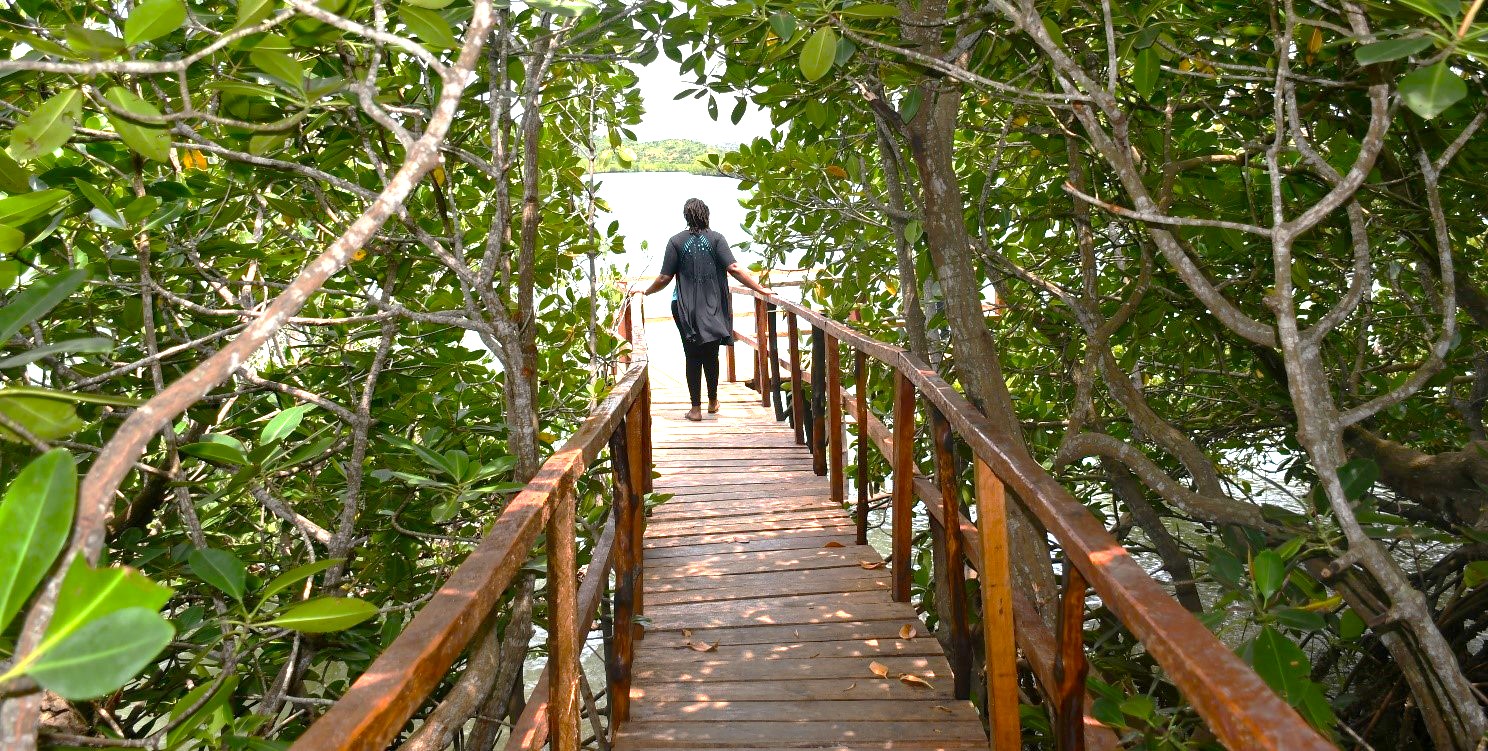
In the heart of Kenya’s coastal region lies Mtwapa Creek, a shared but underutilized gem of Kilifi and Mombasa County waiting to be explored. Thanks to the visionary efforts of KWETU Training Centre for Sustainable Development (KWETU), supported by Camões, I.P., the Portuguese Cooperation agency, under EU’s blue economy investment agenda in Tourism and Cultural Heritage component, this once-underutilized area is budding into an innovative eco-tourism destination.
Both Counties face challenges such as underemployment, skills gap, and environmental degradation. The Kilifi County Integrated Development Plan 2023-2027 aims to make the County a tourist destination, but inadequacies in tourism promotion, marketing, training, infrastructure, and product range hinder progress. Despite limited funding, the strategy identifies high potential for niche tourism, especially in underexploited areas, highlighting the need for investments towards the tourism value chain.
Under this premise, Mtwapa Creek-an Innovative Ecotourism Destination project was conceived by KWETU with three primary objectives in mind: to promote eco-tourism development, generate income through sustainable natural resource utilization, and to safeguard the mangrove ecosystem while enhancing biodiversity.
Through targeted training in entrepreneurship, herbal processing, life skills, group governance, tour guiding, financial and grants management, 182 beneficiaries, including 49% women and 37% youth, were equipped with the necessary technical skills to become nature-based entrepreneurs in the eco-tourism niche. Three community-based organizations (CBO), Green Marine SHG, COMESUM SHG, and Kidongo Beach Management Unit, were awarded subgrants to support the establishment of eco-tourism and culture heritage enterprises within Mtwapa Creek. The grants led to the construction and renovation of mangrove board walks, eco-banda, eco-restaurants, tour boat, and mangrove apiary sites including communication and visibility support. The project also designed a locally networked modular eco-tour package, attracting eco-conscious tourists with glimpses of mangrove forests, creek excursions, Mijikenda cultural shrines, and local nature-based products. Need-based mentorship support was also curated and offered to the subgrantees to enhance their business model capabilities. So far, at least 108 CBO members stand to benefit from additional revenue stream in the first business cycle, indicating long-term economic potential.
KWETU, a beneficiary of the Tourism and Cultural Heritage grant, received business development training and mentorship and established its own tourism social enterprise. The business plan on eco-tourism, training and eco-conferencing was developed, attracting over 1000 visitors within 12 months of implementation. Strategic partnerships and innovative marketing campaigns increased public interest in the social enterprises, attracting KES 2,511,312.00 in revenue from eco-conferencing, eco-tourism, and eco-products, which is reinvested back
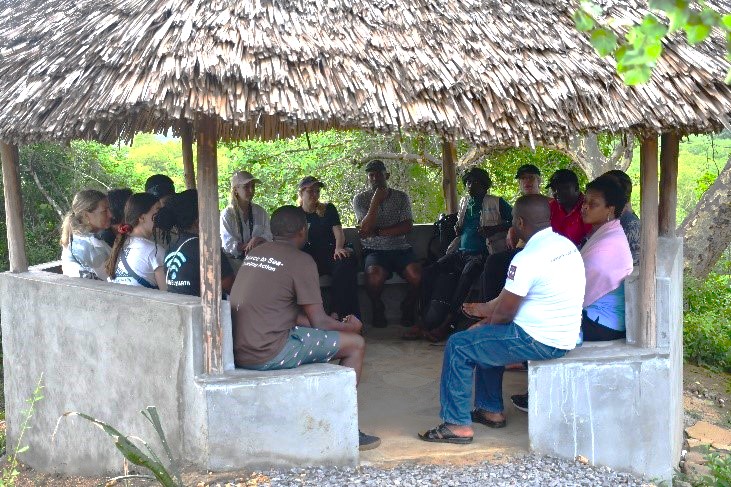
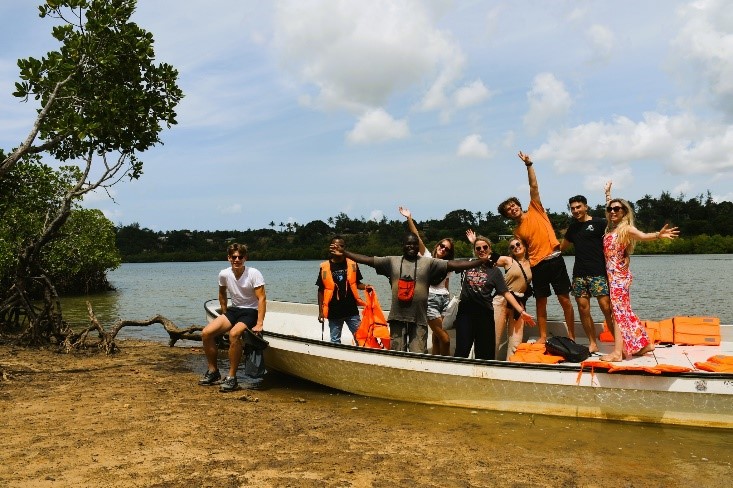
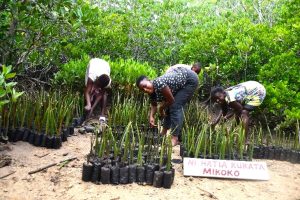 Beyond conventional tourism, sustainability in nature-based tourism relies upon responsible co-management of natural ecosystems and engagement of likeminded stakeholders. The project facilitated public awareness events and campaigns, planting over 199,000 mangrove seedlings. Consequently, KWETU has been selected to represent Civil Society Organizations and chair the Kilifi County Mangrove Management Committee. Strategic partnership engagement is ongoing towards tourism development under the National Mangrove Ecosystem Management Plan 2017-2027. This effort aims to accelerate carbon credit financing, enhance sustainable tourism value chain, and boost economic potential for mangrove ecosystem user communities.
Beyond conventional tourism, sustainability in nature-based tourism relies upon responsible co-management of natural ecosystems and engagement of likeminded stakeholders. The project facilitated public awareness events and campaigns, planting over 199,000 mangrove seedlings. Consequently, KWETU has been selected to represent Civil Society Organizations and chair the Kilifi County Mangrove Management Committee. Strategic partnership engagement is ongoing towards tourism development under the National Mangrove Ecosystem Management Plan 2017-2027. This effort aims to accelerate carbon credit financing, enhance sustainable tourism value chain, and boost economic potential for mangrove ecosystem user communities.
At the heart of our endeavour is the rejuvenation of Mtwapa’s tourism industry, while safeguarding its natural riches. Join KWETU in empowering communities and protecting nature simultaneously by supporting our ecofriendly products. kwetukenya.org
